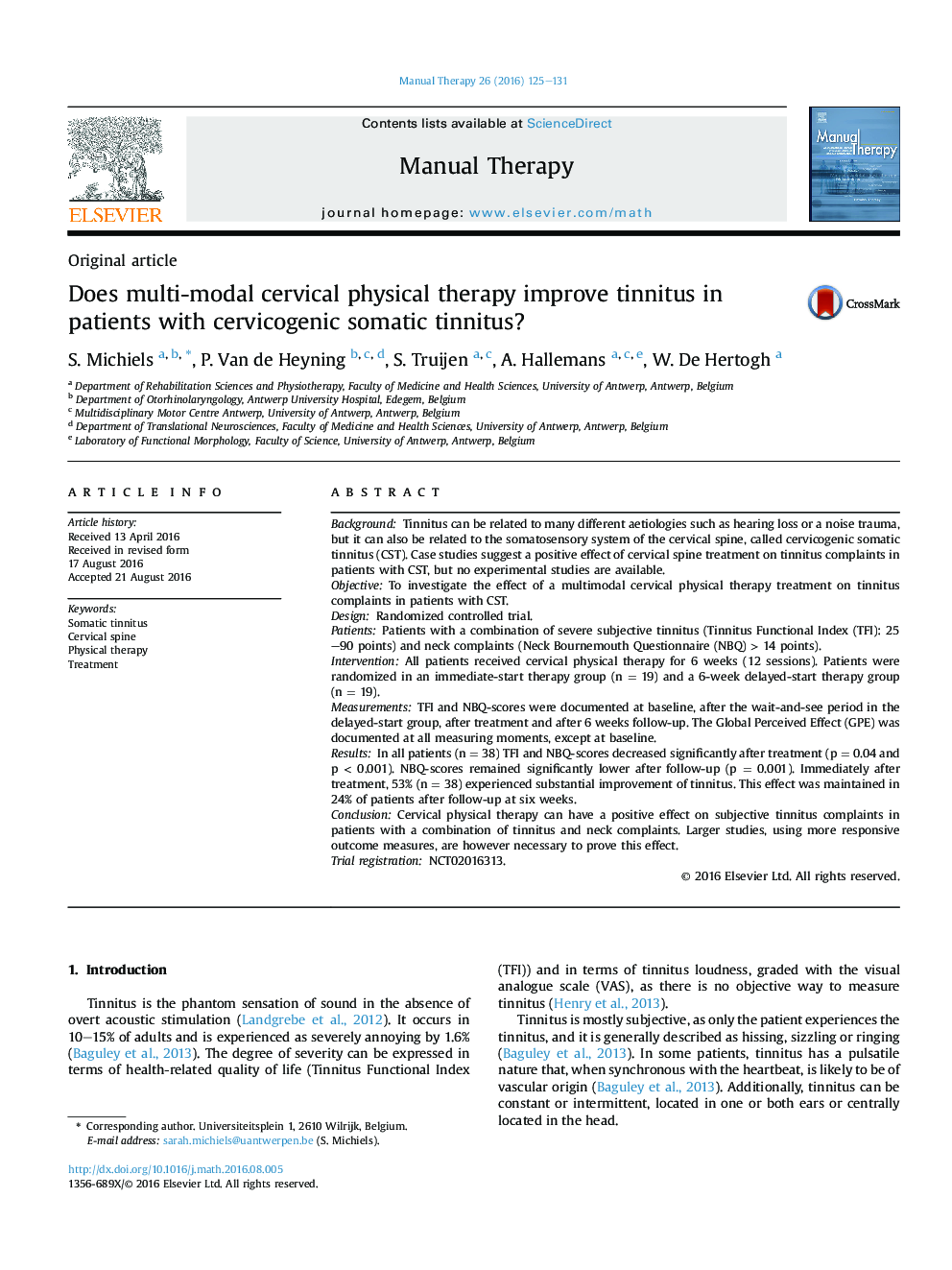| کد مقاله | کد نشریه | سال انتشار | مقاله انگلیسی | نسخه تمام متن |
|---|---|---|---|---|
| 2624790 | 1563092 | 2016 | 7 صفحه PDF | دانلود رایگان |
• Tinnitus and neck complaints decreased after physical therapy treatment.
• 53% of the study population experienced substantial improvement of tinnitus.
• Improved patients report TFI decrease of 11.9 points.
BackgroundTinnitus can be related to many different aetiologies such as hearing loss or a noise trauma, but it can also be related to the somatosensory system of the cervical spine, called cervicogenic somatic tinnitus (CST). Case studies suggest a positive effect of cervical spine treatment on tinnitus complaints in patients with CST, but no experimental studies are available.ObjectiveTo investigate the effect of a multimodal cervical physical therapy treatment on tinnitus complaints in patients with CST.DesignRandomized controlled trial.PatientsPatients with a combination of severe subjective tinnitus (Tinnitus Functional Index (TFI): 25–90 points) and neck complaints (Neck Bournemouth Questionnaire (NBQ) > 14 points).InterventionAll patients received cervical physical therapy for 6 weeks (12 sessions). Patients were randomized in an immediate-start therapy group (n = 19) and a 6-week delayed-start therapy group (n = 19).MeasurementsTFI and NBQ-scores were documented at baseline, after the wait-and-see period in the delayed-start group, after treatment and after 6 weeks follow-up. The Global Perceived Effect (GPE) was documented at all measuring moments, except at baseline.ResultsIn all patients (n = 38) TFI and NBQ-scores decreased significantly after treatment (p = 0.04 and p < 0.001). NBQ-scores remained significantly lower after follow-up (p = 0.001). Immediately after treatment, 53% (n = 38) experienced substantial improvement of tinnitus. This effect was maintained in 24% of patients after follow-up at six weeks.ConclusionCervical physical therapy can have a positive effect on subjective tinnitus complaints in patients with a combination of tinnitus and neck complaints. Larger studies, using more responsive outcome measures, are however necessary to prove this effect.Trial registrationNCT02016313.
Journal: Manual Therapy - Volume 26, December 2016, Pages 125–131
